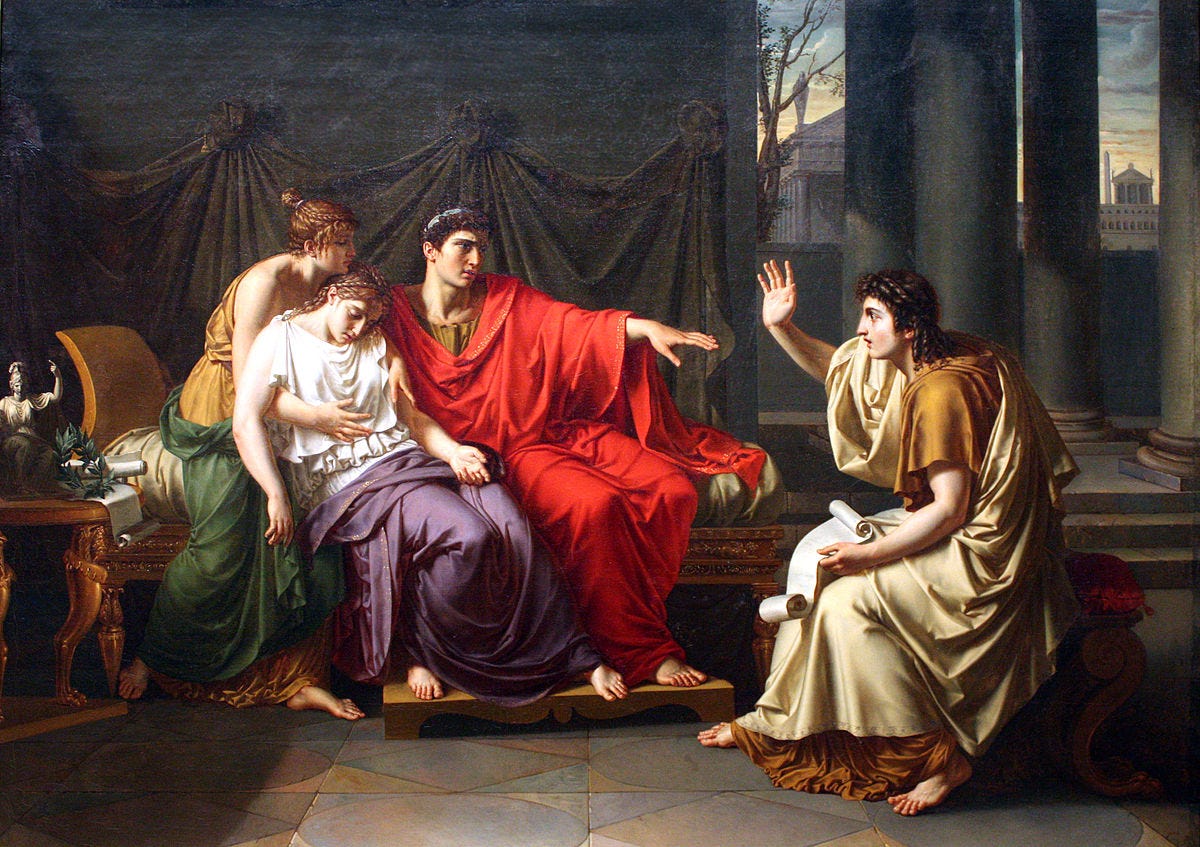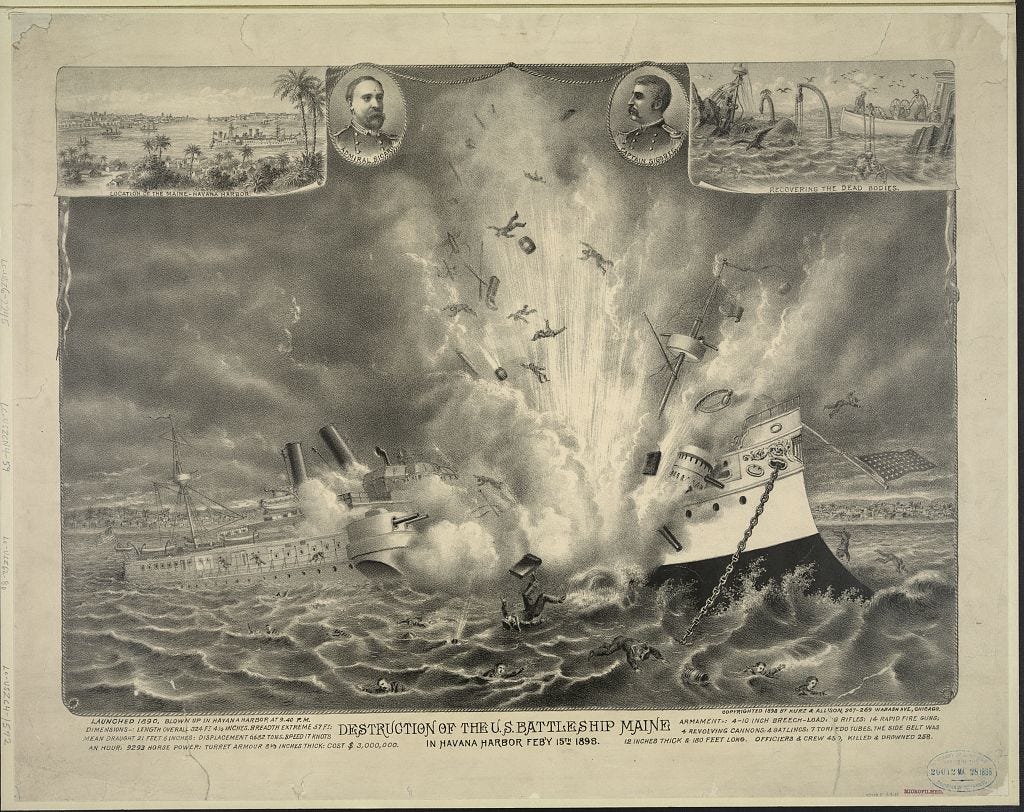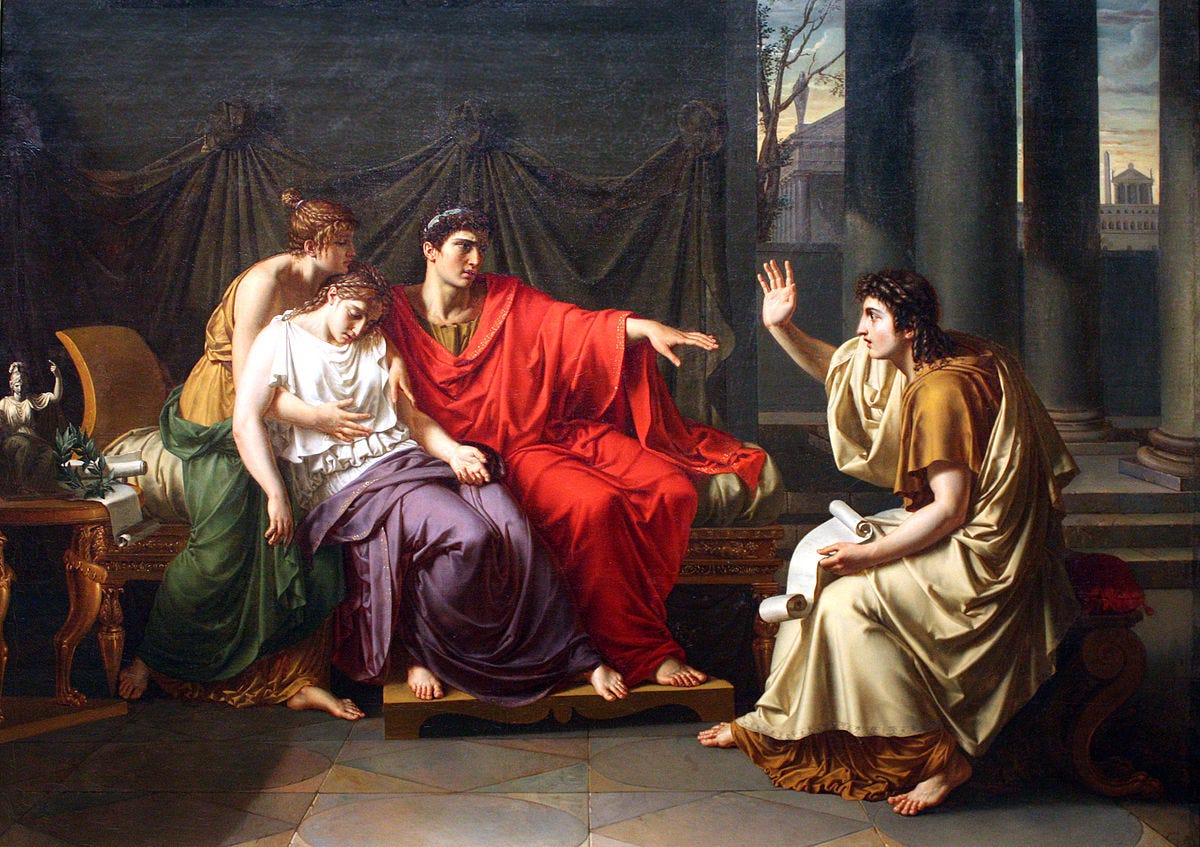Misinformation Exhaustion
The good must associate

“The common people are always impressed by appearances and results.” — Nicolo Machiavelli
The world has a fascination with megalomaniacs.
Men (yes, it is always men) who have accumulated power and enjoy wielding it, treat the world as their sandbox, with toy soldiers waiting to do their bidding.
“You furnish the pictures and I’ll furnish the war,” William Randolph Hearst told artist Frederic Remington, who was his man in Havana in 1897.
Hearst, the powerful publisher of major U.S. newspapers such as the New York Journal and San Francisco Examiner, was pushing to free Cuba from Spanish control, and he knew that public opinion could be swayed by the press.

So when the world’s richest man buys a media entity, there is naturally some interest. It was the case with Jeff Bezos buying The Washington Post in 2013 and with Elon Musk’s purchase of Twitter.
We tend to think that such billionaires — not satisfied with stopping at being the richest person in the world — who changed the way we shop and changed the way we think about cars — must continue to bend the world to their will, but this time through the power of information.
“Why did I do it? Power.”
I was immediately reminded of the 1997 James Bond film Tomorrow Never Dies, in which Elliott Carver (played by Jonathan Pryce), owner of a global media empire, launched a satellite network and plotted to pit China and the United Kingdom against each other through artifice while sitting poised to write the headlines for his entities.
The richest man in the world attempting to control how the world communicates was literally the plot of the film.
In his public speech on launch day, his vision sounded humanitarian to the uninformed, and like propaganda to those who knew him best
“Why did I do it, you ask? The answer is simple: power. The power to illuminate the far corners of the globe, not for higher profits, but for higher understanding between the people of this great planet. What do I expect in return? Worldwide domination. Complete, total worldwide domination. But not over governments or religion or ideology. Over tyranny and isolation and ignorance.”
Later, in the classic supervillian-admits-plot-to-Bond speech, Carver says:
“Words are the new weapons satellites, the new artillery. Caesar had his legions, Napoleon had his armies. I have my divisions: TV, news, magazines… The distance between insanity and genius is measured only by success.”
This is fiction from 25 years ago, but it rings true to what we know from history and current events.
As we look for the present in the past, we find the past in the present.
An invented origin story
Julius Caesar may have had his legions, but when Augustus became the first emperor of Rome, he had his own scribe.
Rome was forever in the shadow of Greece, that bastion of civilization and philosophy. Romans were more engineers than philosophers, creating the infrastructure that allowed cities to thrive. And Greece had its origin story in the Iliad — the classic tale of the Trojans kidnapping Helen, and the vicious dispute between Agamemnon and Achilles.
That epic poem was known for centuries throughout the Mediterranean. Every Greek and Roman citizen knew its content and its significance. And Augustus knew that the secret to every good society was an origin story.
So, what did he do? He commissioned the poet Virgil to craft a national epic that would speak to Rome's illustrious beginnings, make the connection between Augustus and the gods, and serve as a common point of pride for all Romans. Thus the Aeneid was born.
In sum, it was a great piece of propaganda for Rome, giving it a founding father (Aeneas) at the same time another founding father (Augustus) was making drastic improvements to the empire.
And thus, we recognize how powerful a media entity can be — by changing discourse or the story, it can change the course of history.
They’ll Never Take our Freedom
Thus, we have Elon Musk and his acolytes, with their demand for free speech. Of course, they also want to be free from consequences, which is risible, given their willingness to punish those who disagree with their stance.
“How absurd men are! They never use the liberties they have, they demand those they do not have. They have freedom of thought, they demand freedom of speech.” —Søren Kierkegaard, 1843
They make a good case for Twitter being a public square. It is very much a place of public discourse, where, unless someone has hidden their tweets, everything happens out in the public.
If Twitter is such a public utility, then we ought to expect it to be treated as such. Which doesn’t mean it’s a free-for-all.
Quite the opposite.
You can’t expect to have a place of public discourse that is bound by chaos.
And when Chaos Manchild®️ is in charge, all bets are off.
We’re Tired
At this point (and I’ve heard this from many people on Twitter), people are tired. They’re tired of the arguing, the need to fact-check and battle disinformation — even the ability to be heard.
Three reasons for information exhaustion are: uncertainty, polarization, and misinformation.
And yet, in the last 24 hours, I have witnessed example after example of people leaving Twitter. Not pledging to leave, but actually leaving.
When the sale hasn’t even gone through yet.
In a knee-jerk reaction to a new potential owner whom they find personally distasteful, they’re fleeing. Never mind that they’re making this announcement on Facebook, another platform ruled by a megalomaniac with total control over a platform — who, by the way, is so fascinated with the autocratic Augustus that he even has his hair cut like him.
And so, we see many people who are pushed over the brink by the Elon news, making a rash decision before anything even changes. Perhaps we should remind ourselves what Abraham Lincoln did when he was angry with General George Meade after the latter refused to pursue the Confederate army.
It just seems to me, that leaving hastily in a pique of rage will lead to a brain drain. Nothing has changed yet.
Three Responses to Information Exhaustion
So, in the wake of this potential purchase of Twitter by Elon Musk, when you’re exhausted from the information glut, what can you do?
According to that article from The Conversation above, there are three things:
Provide as much reassurance and consistency as you can
Find common ground to bring people together
Share information that can be trusted
There are very real concerns about harassment: there’s plenty of it on Twitter at present, and a change in ownership may result in an even more lenient attitude. No one on any platform — even one that claims to value free speech — should be victimized by harassment.
But if we abandon things entirely, we lose our voice there. As Edmund Burke wrote,
“When bad men combine, the good must associate; else they will fall, one by one, an unpitied sacrifice in a contemptible struggle.”
If you don’t furnish the tweets, someone else will.
Thanks, and I'll see you on the internet.
Update (November 1, 2022)
Tom Nichols had this to say in “I’m Staying On Twitter” for The Atlantic’s daily newsletter:
Still: When the world’s richest man (and the Saudis, among others), own a huge slice of the public space, it matters. It would matter even if Musk did not have the Twitter persona, as he unfortunately does, of a shitposting teenager. Musk, if he is to be believed, plans to loosen the restrictions on Twitter—again, as is his right—to allow more disinformation. Yesterday, he even tweeted (then deleted) links to a discredited conspiracy theory about the Paul Pelosi assault. He may allow Trump back on the platform.
But all of that makes it imperative to stay, not go. Disinformation and trolling works best when the malefactors who engage in it create an impression of being a reliable and trustworthy majority, when they can say that “everybody knows this.” Abandoning such places out of some misplaced sense of moral rectitude simply clears the field for more lies and mischief. The trolls delighting in Musk’s purchase are a very small fraction of the world—and we should not encourage the delusion that there are more of them than there are normal and decent human beings.







I set up an auto delete for my tweets to start removing data from this data-driven engine, but will stay on the platform.
Twitter tends to stress me out so I limit my time on there. I admit my knee jerk response to the news Musk was going to buy the platform was to close my account but instead I did some reading and now I'm curious about how it will all play out. We are living in interesting times...